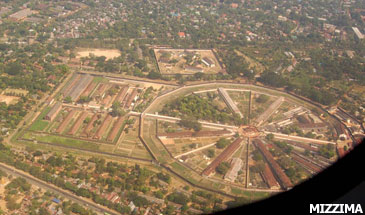In a recent update, the number of political prisoners is Burma has been put at 471 confirmed prisoners, with 465 more prisoners in a verification process as of May, according to The Assistance Association for Political Prisoners – Burma.
 The confirmed figure will continue to fluctuate and is expected to increase as the verification process continues, said the AAPP.
The confirmed figure will continue to fluctuate and is expected to increase as the verification process continues, said the AAPP.
The lifting of some sanctions against Burma “should not blur the fact that hundreds of political prisoners are still imprisoned and that the treatment they are given fails to comply with international standards,” said the AAPP.
For example, the AAPP said Phyo Wai Aung, a detainee who has been awaiting his trial verdict for more than two years in Insein Prison, is in urgent need of medical treatment as he suffers, among other things, from an enlarged liver. Prison authorities, however, have refused to hospitalize him in an outside hospital where he can see a specialist, it said.
It said military personnel who have expressed their political views in public continue to suffer “from confidential arrests and ruthless verdicts.”
The AAPP said that according to confidential information that has not yet been confirmed, three Air Force officers faced trial at a military court recently and were sentenced to 20 years imprisonment after one of them published a critical article about the Tatmawdaw (Burmese army) on a website. The whereabouts of the three officers remain unknown and their families are not allowed to contact them.
It said arrests, interrogations and imprisonments of people who resist and challenge land confiscations and forced evictions continued in April. In Lewe Township, three villagers who resisted eviction were jailed for six months, said AAPP.
A number of Buddhist monks released from prison during the recent amnesty continue to be harassed by the police and have been forced out of their monasteries, it said.
“As before, it seems that President Thein Sein’s regime remains deeply distrustful of the monks in Burma.
As the world commends Burma’s nominally civilian government’s first steps towards democracy, there is a growing concern that the international community may be moving too quickly in relaxing sanctions against it,” said the AAPP.
As one exiled Burmese activist, Soe Aung, from the Forum for Democracy in Burma, said, “The EU has suspended sanctions knowing that its own benchmarks on Burma have not been met: the unconditional release of all political prisoners and a cessation of attacks against ethnic minorities”.


